Digital 52 4️⃣2️⃣ - Building a multi-layered community and growing a positive impact in your neighborhood: the story of Ryozan Park.

Let's make our way to Tokyo, Japan. What’s there? An incredible story bringing together our favorite ingredients: community, positive impact, coworking and more!
Beyond Coworking - Residential Neighborhood - Started by a Family
You can read the story of Ryozan Park on page 264 of “Around The World in 250 Coworking Spaces”.
Understanding the journey individuals undertake to open a coworking space is always fascinating. For some, it happens unexpectedly, almost by accident, or as a natural progression of their existing work. Meanwhile, for others, it is a deliberate and carefully considered decision. In the case of Ryozan Park, the space you are about to explore, their venture into coworking naturally evolved from their initial project of developing a shared house concept in Tokyo.
But why did they choose coworking? As you are about to discover, the philosophy of coworking, which places a strong emphasis on community and fostering connections between people, is perfectly aligned with Ryozan Park's original mission and vision. However, the story doesn't end there. Ryozan Park's growth and impact have expanded far beyond their shared house origins. Over the years, they have become a recognized and influential local presence, actively activating and engaging with numerous communities that gravitate toward their spaces.
If you are curious to learn about the journey they embarked on and the unique story that unfolded, you have come to the right place. Keep scrolling down to delve into the narrative of Ryozan Park's transformation and evolution.
➡️ A little refresher
Who’s behind the featured space?
Meet Nori, Rachel Takezawa, and their family.
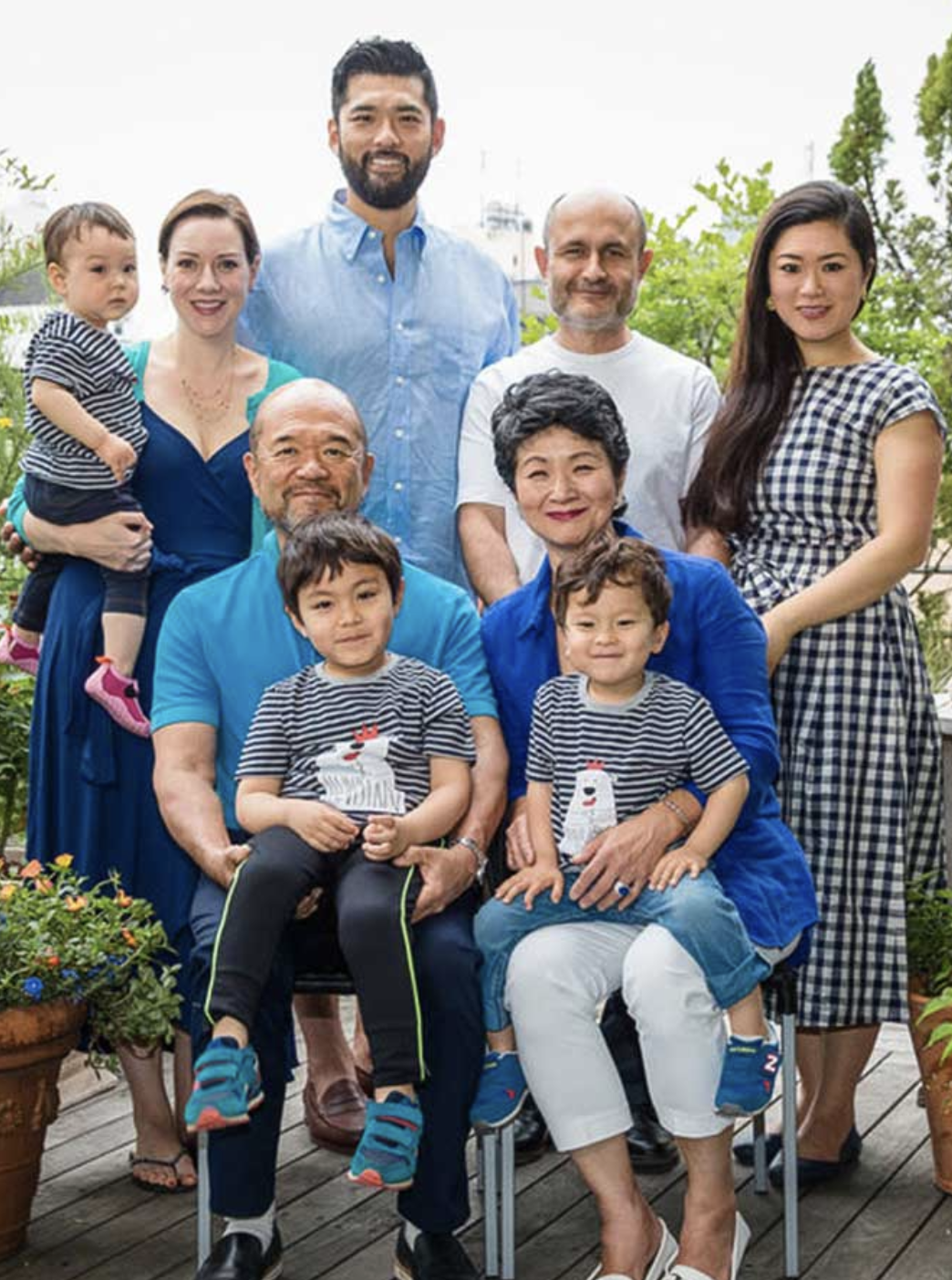
The duo first crossed paths many years ago. Their relationship deepened when Nori returned to Japan after the earthquake to manage the family business. At that time, the building they owned was at risk of losing its tenants. Motivated by their desire to support the community in the aftermath of the earthquake and revitalize his childhood neighborhood, they decided to take action.
Recognizing the need for both housing and workspace, they transformed the building into a unique space that served as both a shared house and a coworking hub. By creating this hybrid environment, Nori and Rachel aimed to foster a sense of community while also providing opportunities for collaboration and innovation among residents and professionals.
Their efforts not only helped in securing tenants for the building but also contributed to the revitalization of the local area. Through their shared house and coworking space, they have successfully brought people together, enabling connections, and injecting new life into their community.
➡️ Key Figures
- Opening year: 2012
- Size when they started: 1 shared house in Otsuka.
- Size today: 4 spaces across 2 neighborhoods in Tokyo.
➡️ A little tour around Ryozan Park
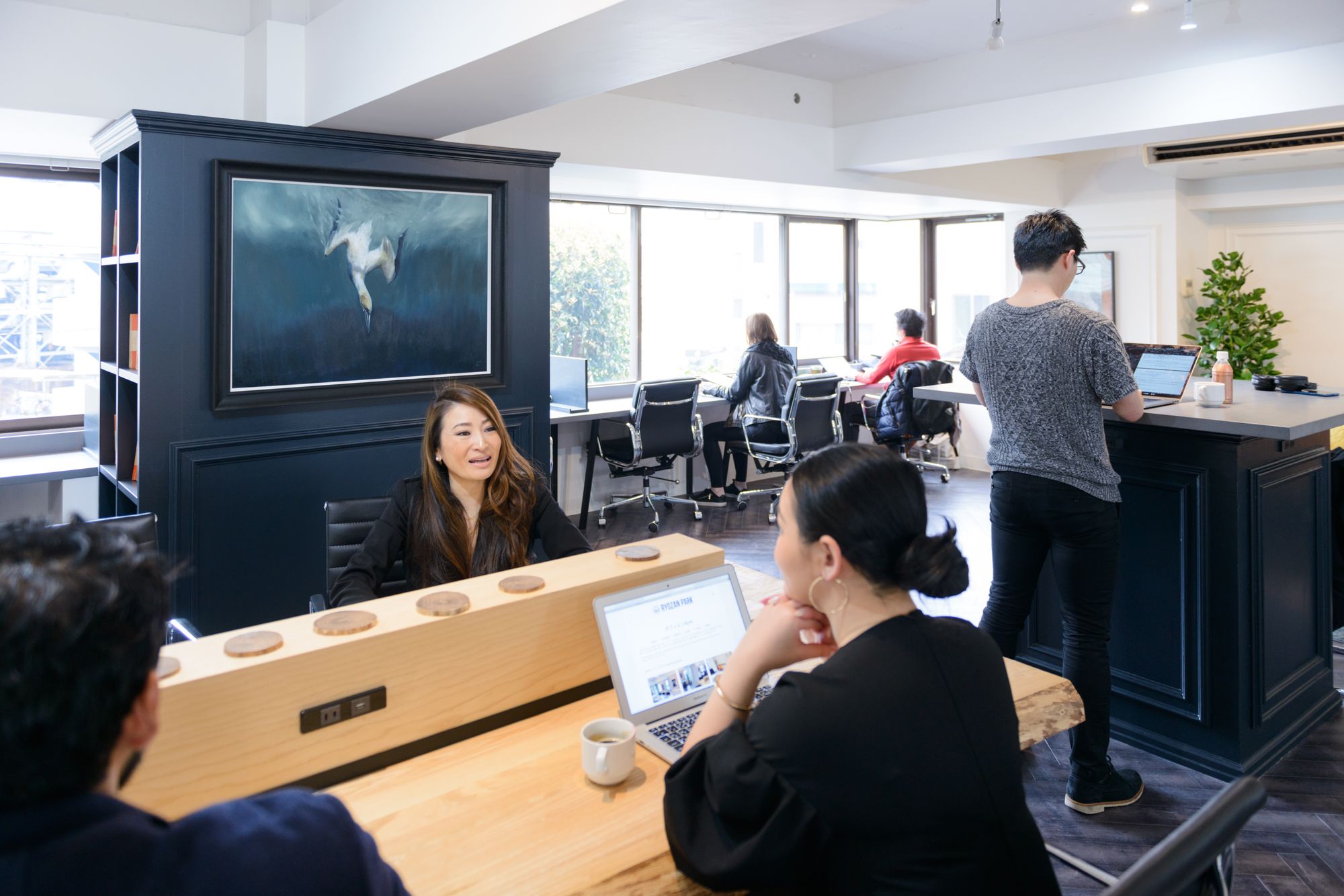
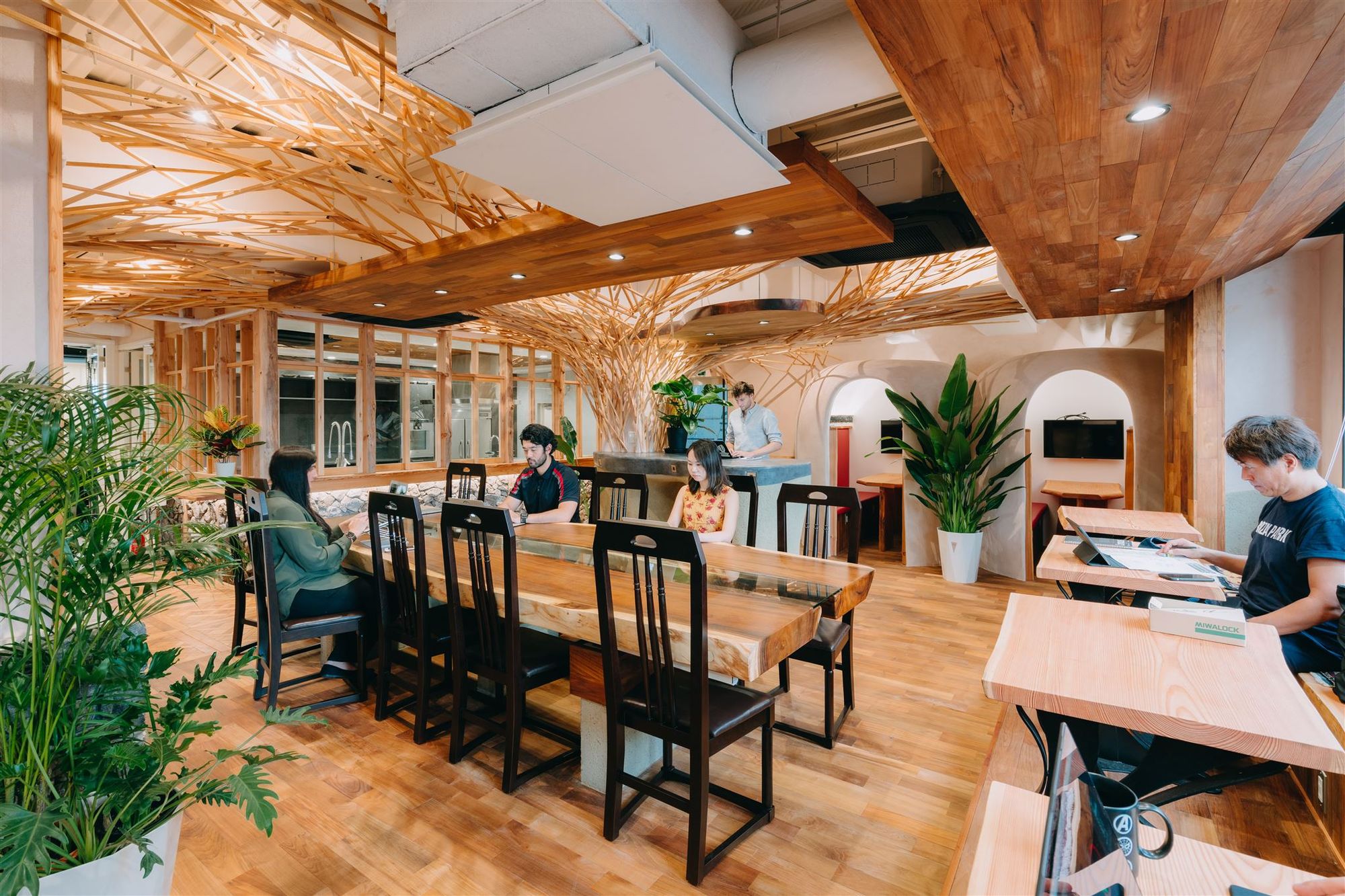
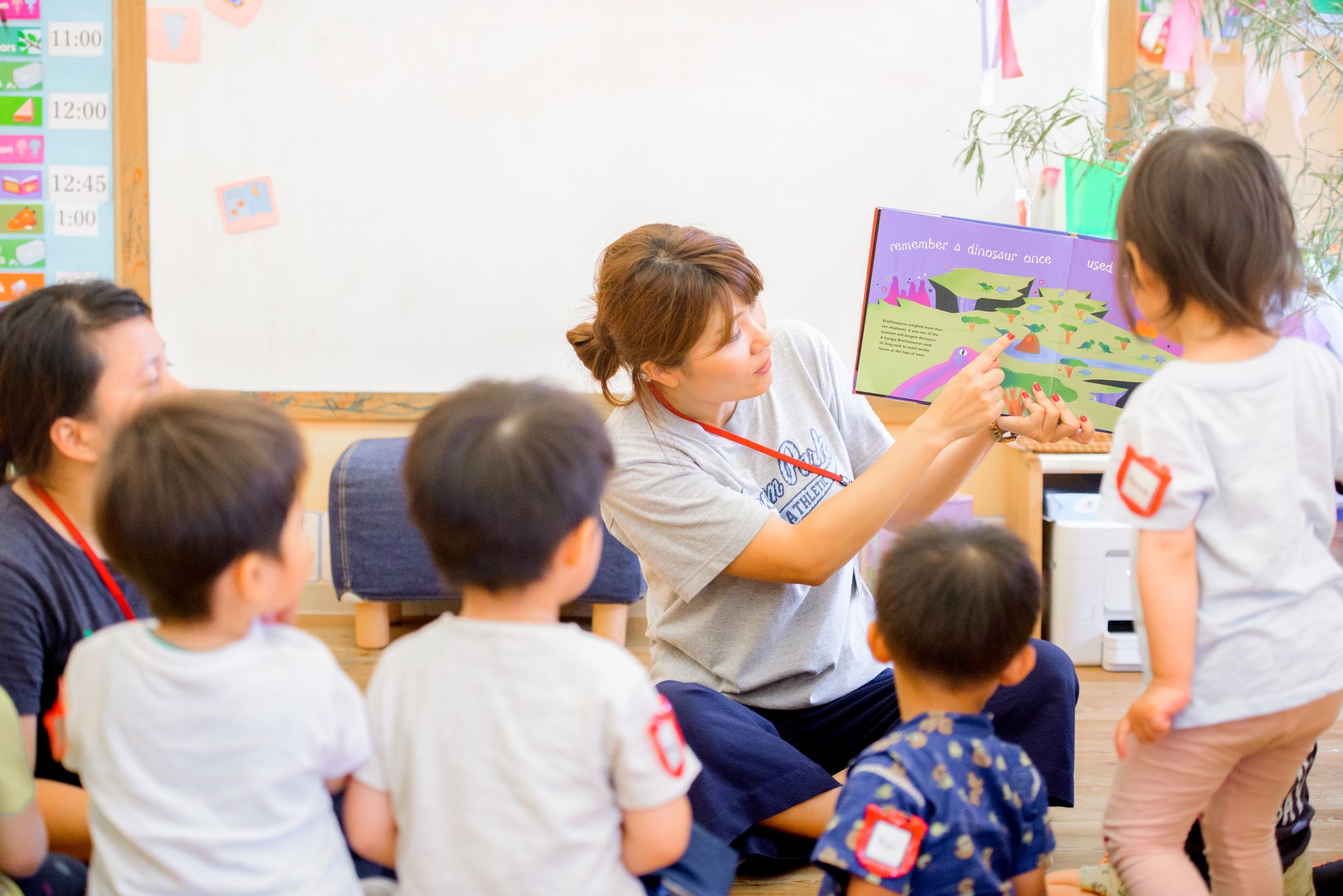

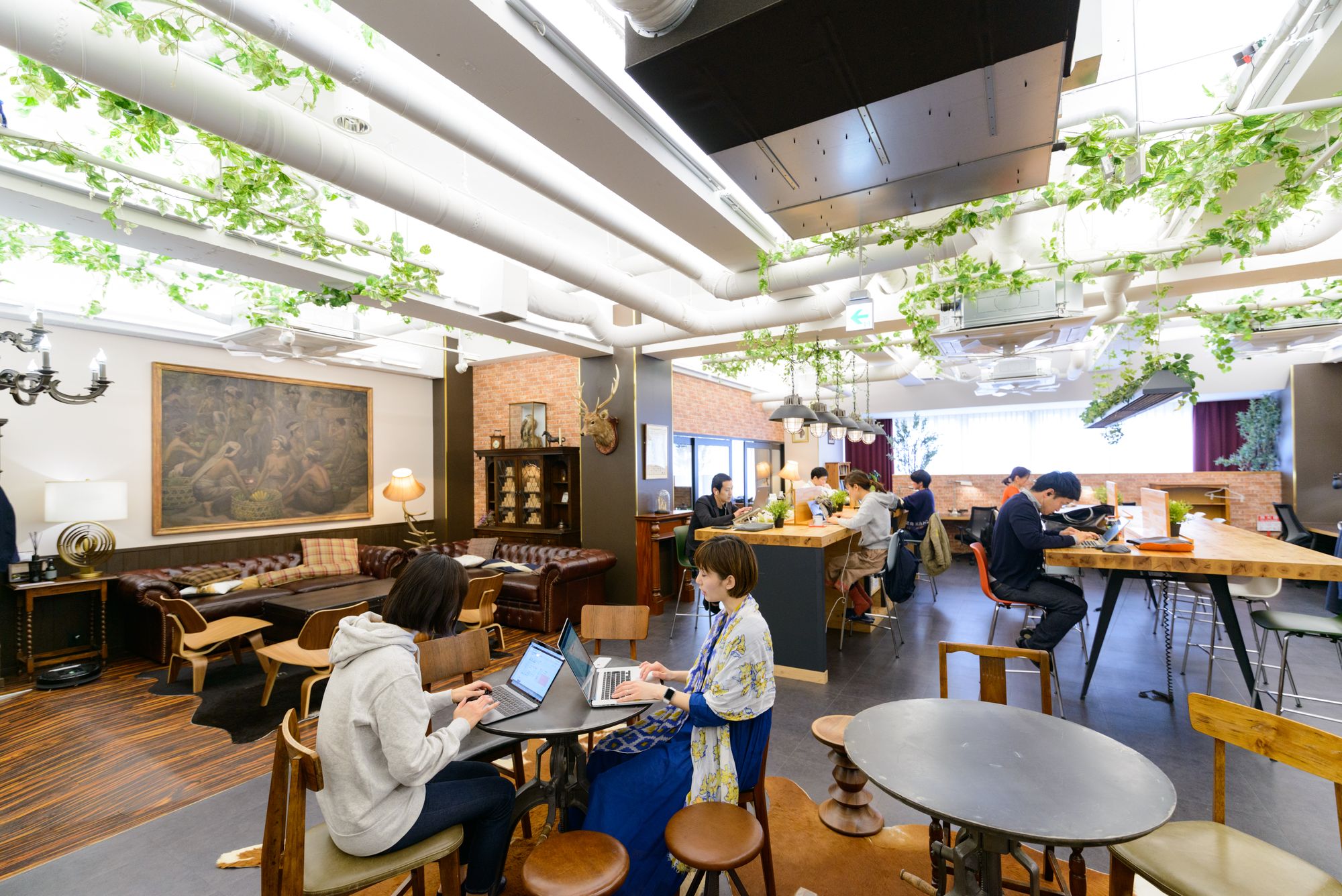
➡️ Behind-the-scenes
Things you didn't read in aw250cs.
“One of our notable accomplishments has been putting this part of town on the map, bringing recognition and value to the area and its community. As a result, families are increasingly choosing to move away from the bustling and congested neighborhoods and instead finding solace and a higher quality of life in this serene and tranquil locale,” said Nori when we first interviewed him.
In 2019, Ryozan Park achieved a significant milestone by winning the prestigious British Business Awards. The visionary work of Nori and Rachel, the founders, was acknowledged, and they were honored with the esteemed title of Entrepreneurs of the Year.
"We take pride in bridging the gap between the old and the new, fostering a sense of unity and progress."
Nori Takezawa, Co-Founder Ryozan Park
➡️ Ryozan Park Today
Where does Ryozan Park stand today? That's the question we recently posed to Nori Takezawa during a catch-up with him. Our last visit took place in January 2020, just before the world was shaken by the global pandemic. At that time, the community was flourishing and expanding in various ways. Now, with Covid behind us, we were eager to learn how Nori, Rachel, and their team navigated the past three years. And that's exactly what you're about to discover!
As a little teaser, everything you're about to read revolves around what truly matters to Ryozan Park: creating value for their extended community. Despite the challenges and uncertainties faced, their unwavering focus on community growth and development has remained constant. So, let's delve into their journey and see how they have continued to shape and enrich the lives of those connected to Ryozan Park.
💫 A new space, A stronger commitment to community activation locally.
Get ready to uncover the exciting growth happening at Ryozan Park! In 2024, a brand new space will open its doors, adding to the dynamic offerings of the community. But what can you expect from this new venture, and how does it contribute to the overarching mission of the brand? Keep reading to find out.
One of the remarkable aspects of Ryozan Park is the widespread recognition of their work by numerous local communities. This acknowledgment has elevated Ryozan Park to a pivotal position, acting as a catalyst for connecting different communities and fostering collaboration. By bridging the gap and facilitating interactions between these diverse groups, Ryozan Park has become an instrumental force in bringing communities together, enabling them to not only get acquainted but also collaborate harmoniously
💬 I’d like to start by asking you: what’s new at Ryozan Park since September 2021?
We are building on Park Green in Otsuka. This new building will be a great addition to what we already have. It will be a coworking hub with a coffee shop/ restaurant. The second floor will be a coworking space and incubation office, exclusively supporting entrepreneurs who are focused on environmental sustainability, farming, and other related fields.
On the fourth floor, there will be apartments. They are not huge, but they range from 60 to 80 square meters, making them suitable for small families with children. People can live there and collaborate with their neighbors. For example, young parents can take care of each other's children, allowing others to go out or enjoy a meal. We can even grow vegetables in a rooftop garden and celebrate the Harvest Festival together. This type of community-oriented apartment functions as a hub for social activities.
The combination of coffee, coworking, and living spaces makes this building truly unique and we can’t wait for it to open in January 2024.
💬 Ryozan Park is structured around 3 principles: Work Live Learn, let me ask why?
Ryozan Park is a unique place. It initially started as a shared house, and over the past 10 years, 20 couples have gotten married and had children who were born within our community.
As our community grew, we realized the need for a place to take care of our children while also having the freedom to pursue our own interests. When you have young children, you want to witness their first steps and hear their first words. Parents don't want to miss these precious moments. So, we created a workspace that provides childcare services. This way, we can take care of our children while also pursuing our professional goals. As our children grow, we expanded our services to include after-school programs and support for school-aged children.
This community has become more than just a place to live; we have become a close-knit family.
In our community, not only do we have childcare services, but we also have other resources that benefit us. Many of our friends and neighbors have formed their own businesses or pursued their interests. Some of them are teachers or tutors, and their children attend the same elementary school as ours. This allows us to support and encourage each other's children. We have created a supportive environment where we can fulfill our children's needs and aspirations. This kind of lifestyle is very natural and organic, where everything falls into place seamlessly.
💬 How did you raise awareness about Ryozan Park when you started? Did you feel locals were understanding what you were building?
It was all very organic since the beginning.
The local understanding is increasing, and our neighbors are also becoming more involved. The area is divided into 20 different districts, and one of these districts is where I, or rather, our community, is located.
Our district is the Toshima City office, and it's like our own little domain. The interesting thing is that this district has become quite popular on websites and in the media. It's seen as a unique, minimal government unit within Tokyo. Many people in Tokyo find our activities fascinating and want to learn from us. This is because in Tokyo, a lot of people live in small apartments, some as tiny as 20 or 30 square meters, and they don't know their neighbors. However, in our community, we know our neighbors, we frequently gather for parties, and we support each other in various ways. We also strive to include and support minorities, such as foreigners, single mothers, and the elderly. This is all mentioned on our homepage.
Our awareness is gradually growing, but we don't want to expand too quickly. The key point is that within a community, a person can typically recognize and remember the names of around 150 people. It may sound limited, but according to a professor from Oxford University, the human brain is wired to remember about 150 names and faces. So, 150 is considered a good size for our community. Maybe there are around 500 people living and working here, so I can't recognize everyone's face, but I can at least remember their faces. I may not immediately recall each person's name, but it's not too overwhelming with 150 people. It's a manageable size that helps maintain a strong sense of community.
As a result, local community associations and business associations have taken notice of us. They are interested in what we are doing and have asked for my assistance in their own associations. Through our efforts, we have been able to attract new residents and workers to our area, bridging the gap between the old and new members of the community. It's like creating a connection between the traditional and the emerging, fostering a sense of continuity and growth.
💬 You gather different communities together from people who work from your space to people who live in them or organize events in them. Do you connect your different sub-communities in any way?
Yes, in many ways!
For instance, we are soon having a dinner party with the local Islamic community in Otsuka. There are many Muslims living here, and there is even an International School catering to Muslim students. However, the leader of the Muslim community is an 80-year-old gentleman who feels that there is a lack of strong connections with the local community. He believes that it's not enough to just talk; he wants to foster deeper connections through shared experiences, particularly through food.
He shared with me that he learned from Allah that the best way to forge connections is by eating together, sharing the same dishes. He wants to make this a monthly event. I was impressed by his idea and decided to offer my support. I want to involve the tenants, residents, and friends in my neighborhood who are interested in connecting with the Muslim community.
Tonight, we will be visiting the Islamic International School, where we will enjoy a delightful meal. They have prepared Biryani for us to enjoy together while engaging in casual conversations. It's not a formal or serious event, but rather a simple gathering that we are organizing to build a sense of community.
Furthermore, I have also invited local farmers, small business owners, and fishermen from the suburbs of Japan to join us. They, too, are eager to create connections and communicate with people from the bustling city. These rural legends, such as fishermen and farmers, want to share their experiences and establish a sense of community with urban dwellers. That's why I suggested using Ryozan Park as the venue, where we can gather once a month and have farmers' markets or fish markets. Participants will contribute towards the cost of ingredients, and we will enjoy eating and drinking together, forging connections not only with farmers but with everyone present.
This kind of event promotes unity and understanding among different communities. It allows us to celebrate diversity and appreciate the richness of various cultures coming together.
💬 What has changed the most post-pandemic for you at Ryozan Park?
Honestly, not much has changed except for the increase in the number of people. I feel like I've encountered a multitude of characters and personalities. There is a genuine desire among the locals to forge friendships within the community, and I find this quite heartwarming.
People have come to realize that they don't necessarily need to flock to bigger neighborhoods like Shibuya or Tokyo stations to find fulfillment. Instead, they have embraced the idea of exploring the depths of their own neighborhoods. It's a beautiful thing to witness—a growing sense of connection and camaraderie among the locals. More and more locals are coming together, strengthening the fabric of our community.
💬 How has Ryozan Park positively impacted its neighborhood over the years according to you?
Due to our involvement in various activities, we have become a go-to community when it comes to addressing urgent or challenging matters within our neighborhood. Community leaders from different areas often approach us seeking assistance in revitalizing and supporting their communities. It's quite gratifying to be able to bring fresh ideas and perspectives to these longstanding communities, injecting new life into them.
We take pride in bridging the gap between the old and the new, fostering a sense of unity and progress.
➡️ Reflections on building Ryozan Park
💬 What else would you have liked to explore with Ryozan Park?
I believe that traditional hotels, whether in Japan's countryside or abroad, often lack the charm and connection with locals that many travelers seek. Hotels tend to cater to a wide range of people, but the essence of our community lies in the fact that 80% of its residents are locals. This makes it an ideal setting to welcome tourists, foreigners, and travelers who are interested in experiencing authentic interactions and cultural exchange.
That's why I always envisioned creating a small-scale hotel, one that provides a comfortable and welcoming environment for guests to stay with us. This way, they could truly immerse themselves in the local community, engage with us, and discover the hidden gems of our area.
💬 What has been your biggest learning out of bringing to life Ryozan Park?
Building a community is an ongoing process that doesn't have a definitive endpoint or specific goals. It's a continuous journey filled with learning and experimentation. I believe in the power of collective ideas, so it's not just about me leading the way, but rather about creating and shaping the community together with members.
While it is true that many view business solely as a means to make money, I approach my work with a broader perspective. My business aims to establish sustainable communities that go beyond mere profitability. It's not a straightforward path, and there are no easy answers. However, that's precisely what excites me about it. It's a constant exploration, driven by a desire to create a meaningful and enduring impact.
💬 What would be your best advice to someone thinking about opening a coworking space?
Enjoy yourself.
If you're considering opening a coworking space solely for business purposes, I urge you to reconsider. Creating a community is an ongoing and multifaceted endeavor that requires nurturing and care. It's akin to tending to a garden of organic vegetables, where insects naturally appear since pesticides aren't used. It may not be the most efficient approach, but communities appreciate the authenticity of organic produce. If you invest time and effort, you can harvest better vegetables and fruits. However, if time is limited, focusing solely on efficiency may yield monetary gains but might miss the deeper essence.
That's why I emphasize enjoying the process of building tiny communities and addressing their unique challenges.
Don't perceive your tenants simply as individuals providing you with monetary contributions. Instead, strive to develop genuine connections with them. Befriend them and let them become part of your life.
💬 If you could chat with other coworking space owners now, what would you like to ask them?

💬 And if you could chat with members of coworking spaces?
I’d ask them the same questions: “What is your dream? What do you aspire to do?” I find their dreams fascinating and inspiring. It ignites a desire within me to share in their dreams and create something meaningful together.
💬 Last but not least, where would you want to bring Ryozan Park next?
Since our opening in 2011, former community members have taken the initiative to establish their own communities in Kyushu, located in the southern part of Japan, as well as in Koka, situated in the central part of the country. These communities, although in different regions, share a similar spirit of fostering connections and drawing inspiration from Ryozan Park.
Seeing the success and impact of our community model, I aspire to expand this wonderful Park community style to other diverse areas. However, I understand the importance of not operating solely by myself. My aim is to support and empower these community leaders who are passionate about creating their own unique communities. Together, we can spread the essence and values of Ryozan Park to new horizons, allowing the spirit of community-building to thrive across different regions.
Join us in Rome on July 25th, let’s celebrate coworking together!
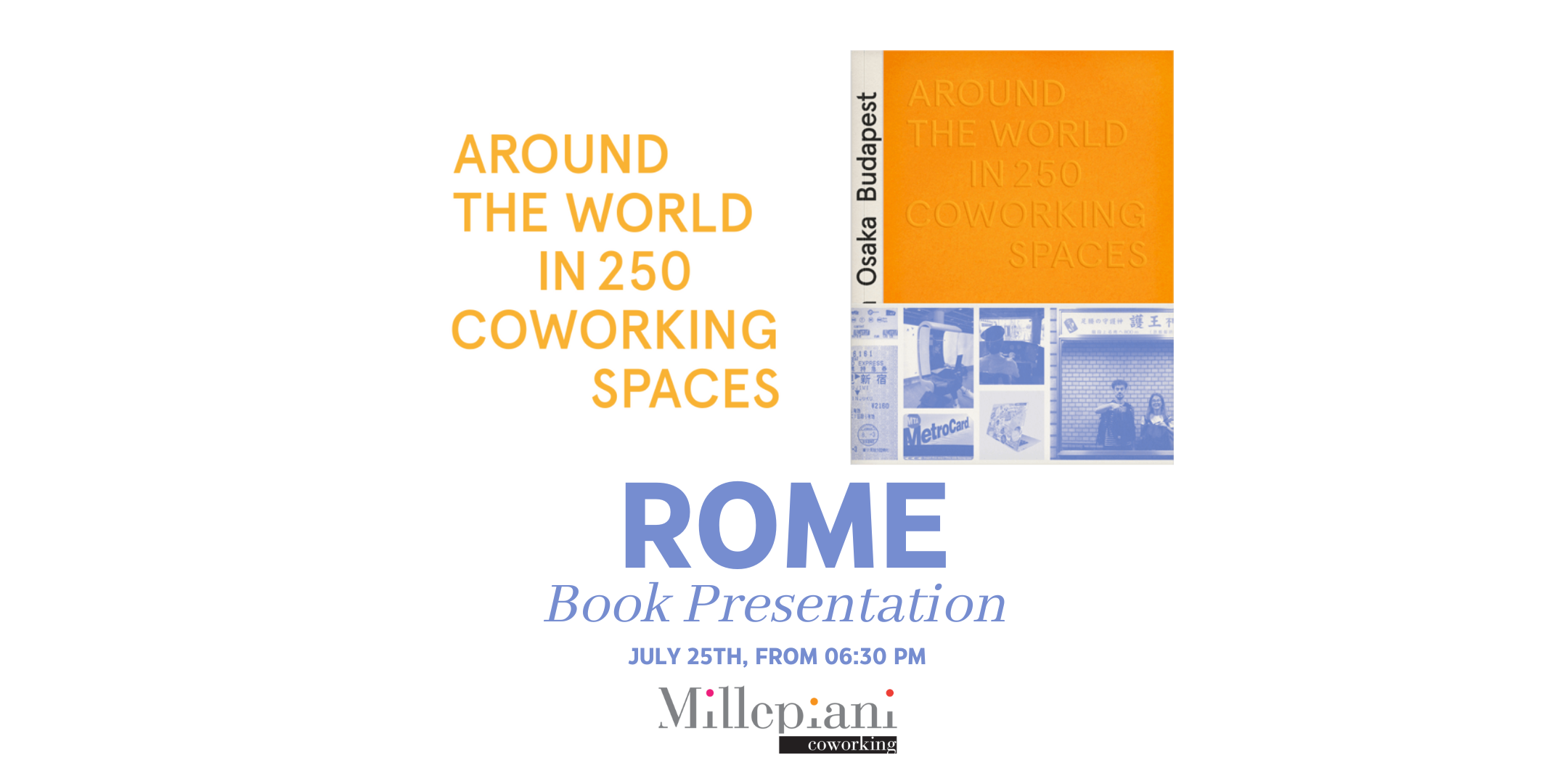
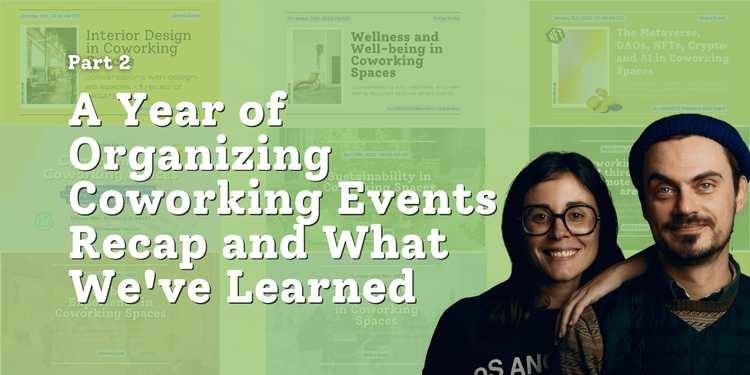




Member discussion